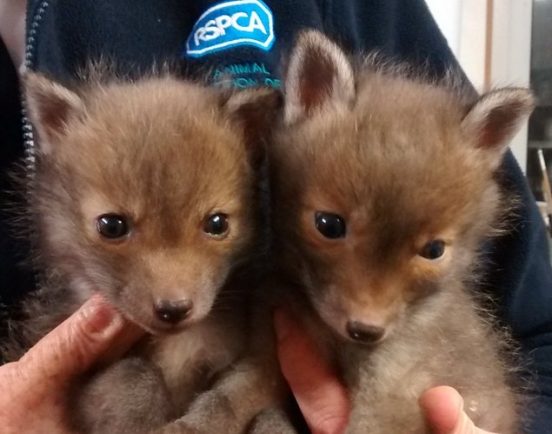The days are longer, the flowers are blooming, and spring has sprung for 2017.
While the sunny weather has put smiles on the faces of most, spring also means busy season is arriving for the RSPCA’s officers and wildlife centre staff as the baby boom begins.
Every year, hand-in-hand with spring comes a surge of calls about baby wild animals and birds who need the charity’s help and whether they’ve been attacked and injured by another animal, separated from their mum, or even orphaned, the RSPCA is always there to help baby animals in need.
Since the beginning of February, the charity has take in 753 young wild animals, including fledglings, nestlings and juveniles – 499 of which were birds and 254 mammals.
Here are just some of the baby animals the RSPCA’s staff and volunteers have been helping so far this spring:
Squirrels
RSPCA inspectors and officers have been going nuts for the sweet, little baby squirrels coming into their care over the last few weeks.
One tiny newborn was found with puncture wounds – possibly caused by another animal – in Walsall and was rescued just in time. He is now being hand-reared by wildlife specialists in Shropshire who hope to rehabilitate him and then release him (under licence).
The charity has also been called in to rescue a number of other baby squirrels who have been orphaned or rescued from pets.
If it is safe to catch and handle an animal, such as a baby squirrel, then the RSPCA has some advice:
* Wear suitable gloves;
* Quickly place into secure cardboard box with ventilation holes, lined with towel or newspaper;
* Keep the animal calm and quiet;
* Take the animal to a vet, RSPCA wildlife centre or local wildlife rehabilitator (which you can find online, but please note not all have been inspected by the RSPCA.
The RSPCA urges people to take care around all wild animals, particularly larger ones such as badgers, and advises people to keep a safe distance and to report any concerns to the charity’s 24-hour emergency line.
Wild animals – even babies and youngsters – can bite or scratch when frightened, particularly if they are injured or sick.
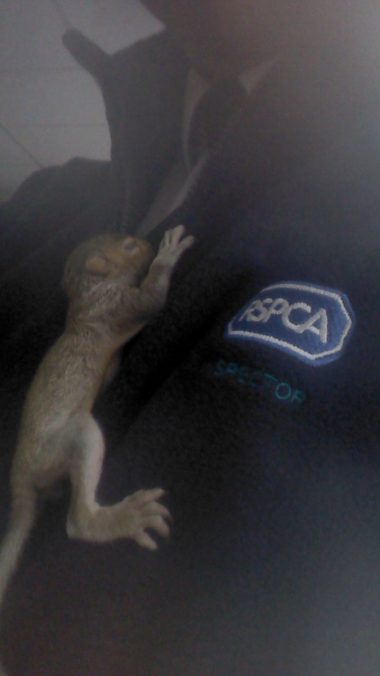
Ducklings
Darling ducklings also keep our inspectors busy at this time of year. This flock of babies were collected after being found stuck in a drain in Thorpe Willoughby, near Selby, North Yorkshire, by a German Shepherd puppy who was out for a walk with his owner late at night on 10 April. They are now being cared for by a specialist wildlife rehabilitator who will prepare them for release back into the wild.
The gorgeous baby (pictured above) was rescued alongside her six siblings in York after being left by mum. They’re now also being cared for by specialists for eventual release.
Two tiny ducklings were rescued on 17 April from Verwood, in Dorset, after a sibling was killed by a cat. They were collected by an RSPCA officer and taken to a nearby wildlife specialist for care.
Sadly, ducklings – like foxes – can often end up as orphans when their mums are killed in accidents on the roads.
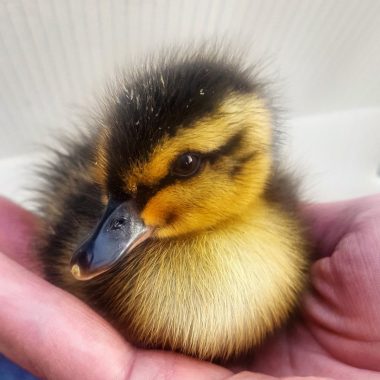
Fox cubs
This beautiful brother and sister were found alongside their sibling who had, sadly, already died, huddled under a fire escape at a block of flats in Bournemouth, in Dorset on April 7.
They were rescued by RSPCA officers and taken for specialist care at Wiltshire Wildlife Hospital.
Many of the cubs are so young they need hand-rearing by dedicated staff and volunteers who wake regularly throughout the night to feed them.
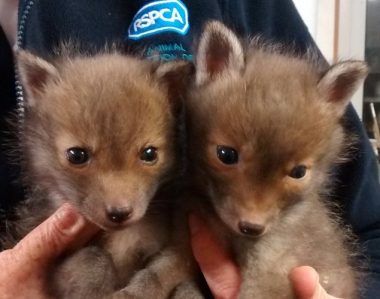
Fledglings
RSPCA wildlife centres care for more than 1,000 fledglings each year as they’ve been picked up by well-meaning members of the public during the spring months because they are concerned they have been abandoned by their parents.
One little robin was brought into RSPCA West Hatch, in Somerset, on 8 April by members of the public who had found the little baby on the ground in their garden and were concerned it had fallen from its nest. He is now being looked after by experts.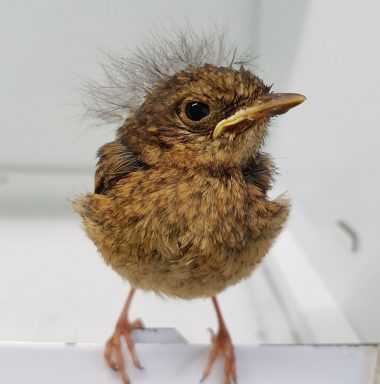
And a tiny tawny owlet was rescued and taken to the charity’s Cheshire wildlife centre with a swollen eye during the first week of the month.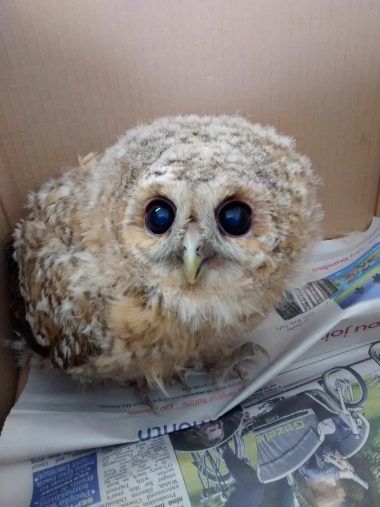
The RSPCA advises people not to touch a baby birdunless they are sure it genuinely needs help.
Fledglings – who have most or all of their feathers – leave their nest before they can fly but their parents are usually nearby and will still be feeding their baby. We advise watching from a distance and not returning the bird to its nest as that may disturb any other youngsters. If the fledgling is in immediate danger, place it in a sheltered spot a short distance away.
If you see a baby bird with a few feathers, or none at all, it is a nestling and will not survive for long outside the protection a nest. Please take it to a local vet or wildlife rehabilitator.
If you find a tawny owlet under a possible nest, please monitor from a distance to see if the parents return. If you hear them calling, leave the bird alone. These owlets can climb back into the nest.
There’s lots of information about what to do if you find a fledgling on the RSPCA’s website. And there’s also advice on what to do if you’re concerned for a wild animal online and from the staff on our 24-hour cruelty line: 0300 1234 999.
Please bear in mind that sometimes it can be faster to take the animal to a vet or local rescue centre yourself as our officers can’t always attend immediately.

